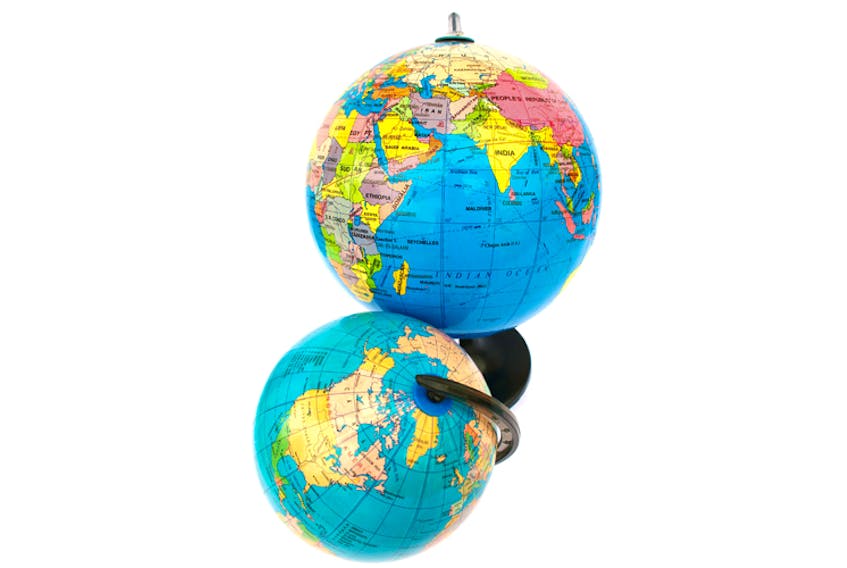
Motherhood, an indescribable feeling, brings along unquantifiable amounts of love, passion and dedication. The surreal realization that life is growing inside you marks the start of this remarkable journey. Raging hormones, morning sickness, ever-changing-clothes and a million doctor’s appointments are the hallmarks of pregnancy. “What to Expect When You Are Expecting” is your new best friend and once your family knows the (lifelong) supply of (free and sometimes unrequired!) advice only doubles!
The apprehensions of being a mother are amplified with birthing and raising a child in a foreign land. Leaving one’s home country implies the loss of one’s existing social network. Rebuilding this eco-system in a new socio-cultural environment requires significant time. In a new place, simple choices like the right brand of baby-food to complicated ones like finding the right OB-GYN seem tougher. During pregnancy and while caring for your child, the thought of being away from your family, craving foods that aren’t found in your vicinity and adapting to the recommended practices (different from your ethnic roots) add considerable stress to an immigrant mother’s life. In addition, some immigrant mothers face an added barrier in the form of language. The ability (or lack of) to effectively communicate (especially with a health care provider or a childcare provider) only exacerbates the situation.
A whole new world
During pregnancy and while caring for your child, the thought of being away from your family, craving foods that aren’t found in your vicinity and adapting to the recommended practices (different from your ethnic roots) add considerable stress to an immigrant mother’s life.
Hence, naturally, I was very nervous to go through my pregnancy, the birth and raising a child in a foreign country. Furthermore, I was (and at times continue to be) anxious about bringing up a child in a social construct I was unfamiliar with. However, with the strong support of the excellent doctors, residents, nurses, my parents and of course, my incredible husband, I gave birth to a healthy child after which all I wanted to do was sleep but realized that my work had just begun.
The main ingredients — food and sleep
Under my mother’s guidance (with strict written instructions from my grandmother), I began a regimented diet that would not only nourish the baby (as I was breastfeeding which is an encouraged norm in my culture) but also would keep me fit as a fiddle. Seen as a new life for the mother post-birth, the post-partum diet is followed strictly to ensure the longevity of her health and well-being. Apart from the regimented diet, in my culture, the baby and the mother are massaged every day with warm (coconut or castor) oil (from head to toe) following which they take a hot shower. This not only strengthens the muscles and bones and keeps the skin healthy, nourished and supple but also facilitates deep sleep for mother and child. Seen as one entity, the mother and child are encouraged to spend lots of time together to help ease the bonding process.
Raising a global citizen
Immigrant mothers, like myself, often find themselves in a unique situation as they are raising global citizens. In a foreign socio-cultural environment, ensuring that the child receives both facets of her culture and heritage (through foods, language, music, clothing etc.) is a challenge. Adapting to a culture that ranks high on individualism on Hofstede’s Dimensions of National Culture takes time, more so coming from a collectivistic culture like India or China. However, it was heartening to read that Statistics Canada discovered that in 2016, nearly 40 per cent of children under the age of 15 had at least one foreign-born parent, a number that is projected to reach between 39 per cent and 49 per cent by 2036. This made me realize (and gave me strength) that I was not the first do to this and certainly, will not be the last.
… it was heartening to read that Statistics Canada discovered that in 2016, nearly 40 per cent of children under the age of 15 had at least one foreign-born parent, a number that is projected to reach between 39 per cent and 49 per cent by 2036.
Knowing that my child is both Indian and Canadian (not half and half — both!), as parents, we try to give her both sides of her heritage by celebrating festivals like Christmas and Diwali (which means more presents for her), by speaking official languages of both countries (English, French, Kannada and Hindi) and by playing Newfoundland tunes along with Bollywood music. Bringing up an Indian-Canadian in a predominantly Anglophone socio-construct did feel daunting at first but now, I find that with a little extra effort (and lots of love), we are giving her the best of both worlds in the hopes that she reflects (in her personality) the strong, culturally rich, pluralistic countries that she belongs to — Canada and India.
Prajwala Dixit is an Indian-Canadian engineer, journalist and writer in St. John’s, NL who writes a biweekly regional column for the SaltWire Network. When she isn't engineering ways to save the world, she can be found running behind her toddler, writing and volunteering. Follow her at @DixitPrajwala
MORE FROM PRAJWALA DIXIT
- More finesse in Newfinese than meets the eye
- Time to make better choices before it’s too late to save the planet
- Movies magically bring people together, promote cultural understanding
- Racism alive and well – but it may not be what you think
- Think you see discrimination? Call it out
- Reliving Ramadan in Atlantic Canada









